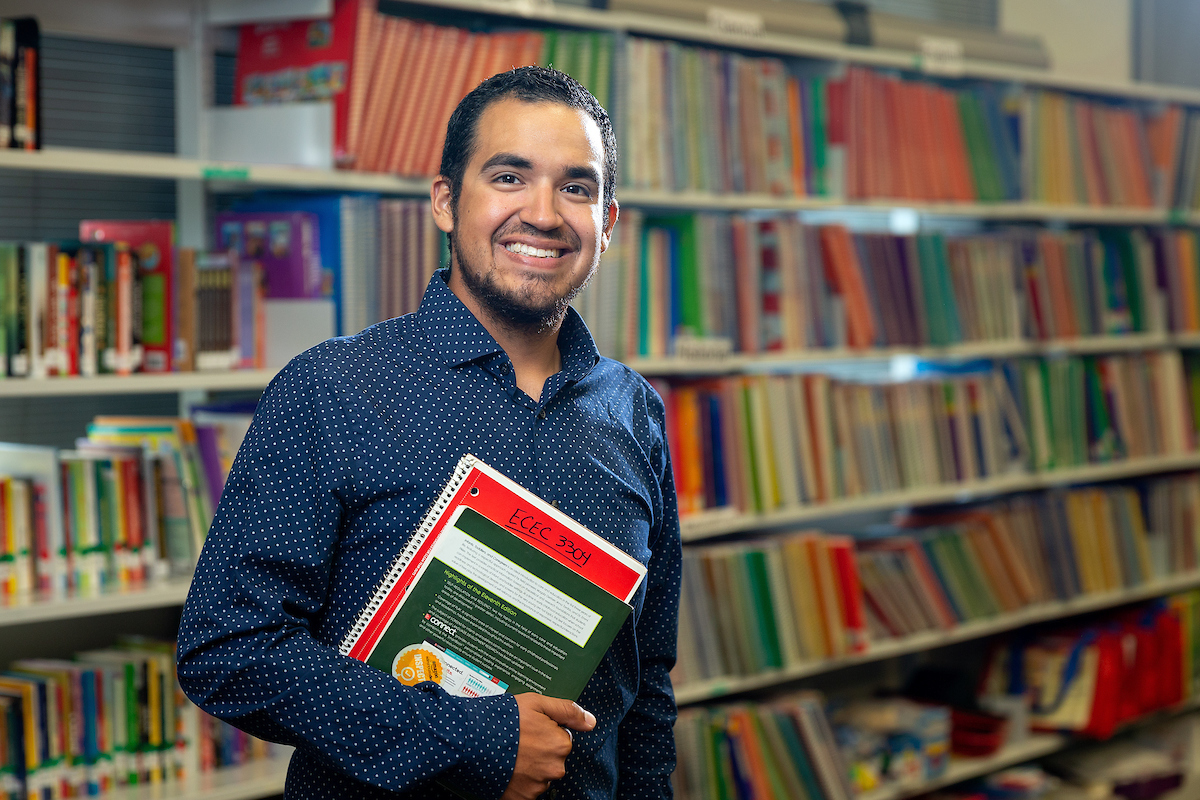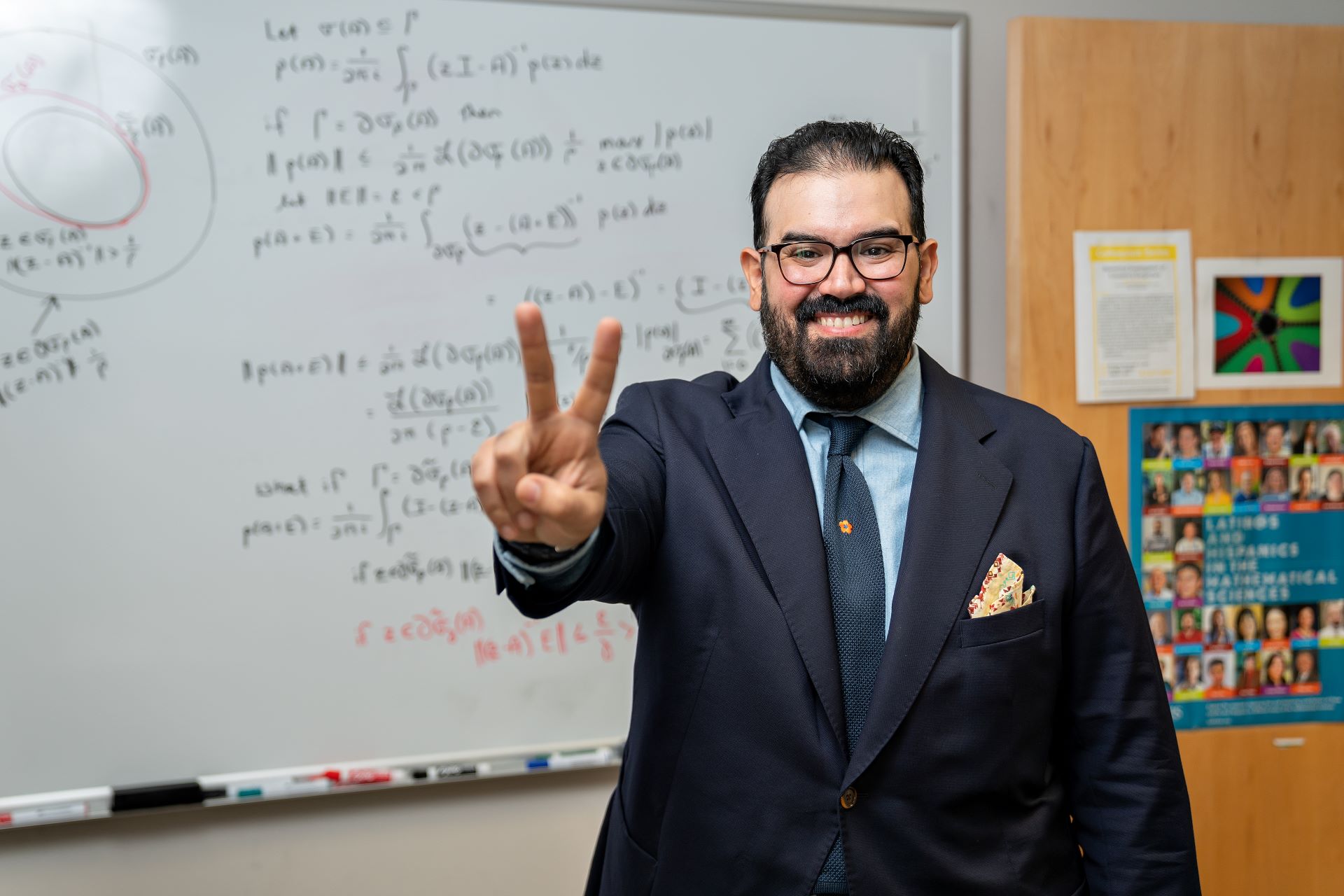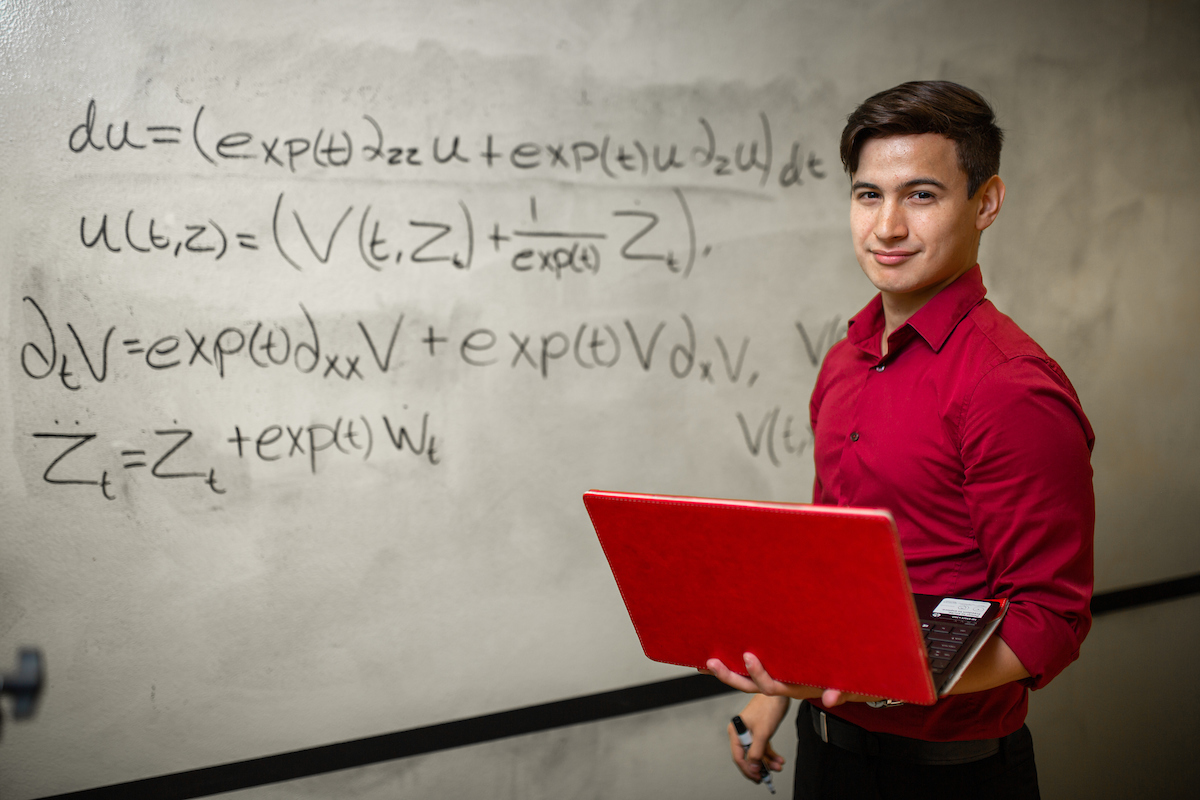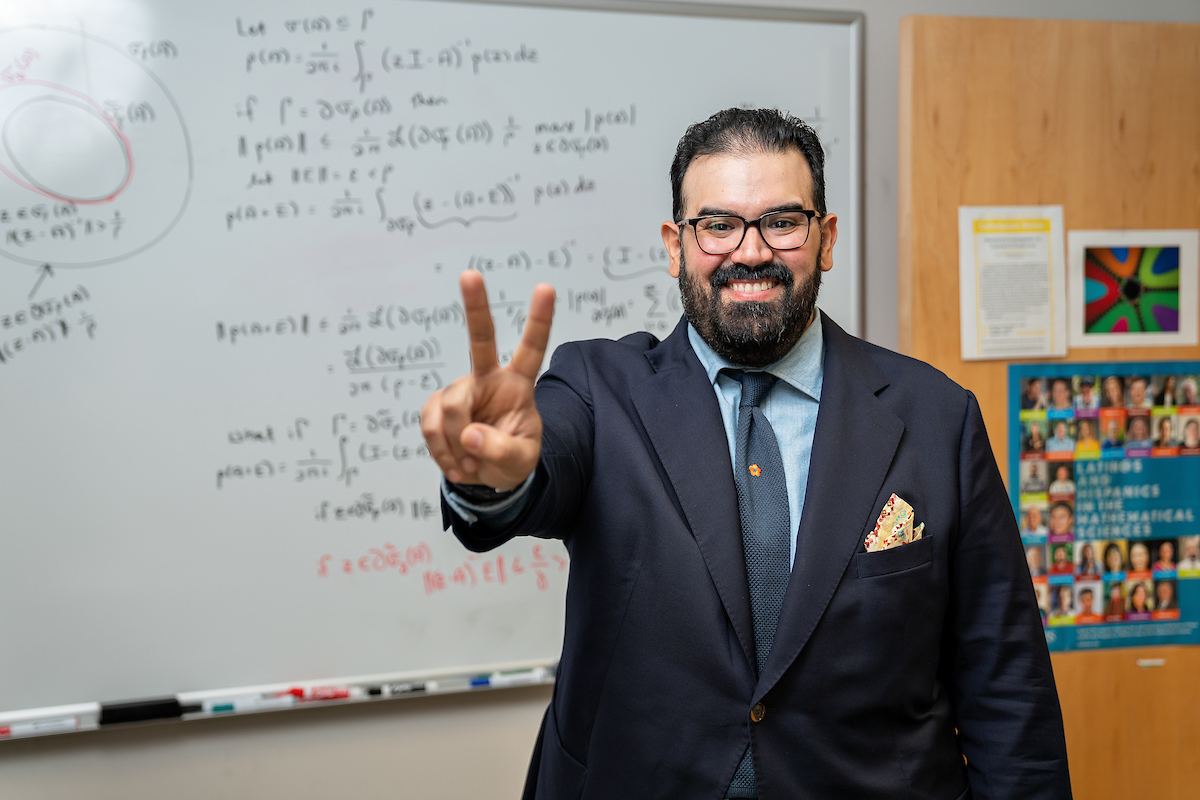Mission
Academic Programs
Bachelor's
Applied Statistics & Data Science (BS)
Bachelor of Science in Applied Statistics & Data Science
Program Modality: Campus
The Bachelor’s degree in Applied Statistics & Data Science exposes students to the fundamental knowledge and skills needed to solve real-world problems using statistical and mathematical techniques.
Upon graduation, students are prepared to pursue a career providing businesses and organizations with invaluable information about their products or clients.
Mathematics (BS)
Bachelor of Science in Mathematics
Program Modality: Campus
The Bachelor's degree in Mathematics provides the skills for students to become proficient in mathematics, from calculus to differential equations. Program graduates are prepared for careers as mathematicians, scientists, engineers, and educators.
The program has five concentrations that you can choose from Applied Mathematics, Pure Mathematics, Statistics, Science and Engineering, and Economics. Students can also expect to take a wide array of courses such as calculus, applied discrete mathematics, and actuarial financial math.
Concentrations/Certifications:
Mathematics - Teacher Certification (BS)
Bachelor of Science in Mathematics - Teacher Certification
Program Modality: Campus
The Bachelor's degree in Mathematics with Teacher Certification provides the skills for students to become proficient in mathematics, from calculus to differential equations. Program graduates are prepared for careers as mathematics educators, mathematicians, scientists, and engineers. The program provides a pathway to 4-8 Teacher Certification, 7-12 Teacher Certification, or Middle School Mathematics 4-8 Teacher Certification.
UTRGV is approved by the State Board of Educator Certification to recommend students who complete all requirements of this degree for teaching certification.
Concentrations/Certifications:
Master's
Applied Statistics and Data Science (MS)
Master of Science in Applied Statistics and Data Science
Program Modality: Online
Program Modality: Campus
Program Modality: Campus and Online
The Master’s degree in Applied Statistics and Data Science covers a broad range of applied statistical methods and computational tools such as data science processes, machine learning, data visualization, algorithmic and computational thinking, ethics, and algorithmic accountability. Program graduates acquire competency in the areas of computational and statistical thinking, mathematical foundations, algorithms and software foundation, data curation, and knowledge transference—communication and responsibility.
Mathematics (MS)
Master of Science in Mathematics
Program Modality: Online
Program Modality: Campus
The Master's degree in Mathematics provides graduate-level education for students who intend to teach at various levels, find employment within the industrial sector, or continue their education beyond the master's level. The program offers the following concentrations.
On-Campus Concentrations:
Online Concentrations:
Doctorate
Mathematics and Statistics with Interdisciplinary Applications (PhD)
Doctor of Philosophy in Mathematics and Statistics with Interdisciplinary Applications
Program Modality: Campus
The Doctoral degree in Mathematics and Statistics with Interdisciplinary Applications allows students to study cutting-edge scientific problems within the quantitative disciplines offered in the program.
The flexibility of this research-driven program provides a strong mathematics and statistics background to support intense quantitative work in diverse disciplines such as health care, engineering, biomedicine, and other science-focused disciplines.







